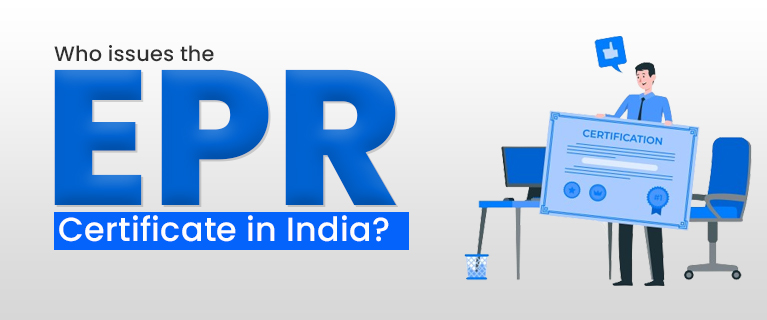BIS Certification Schemes In India
The Bureau of Indian Standards (BIS) plays a pivotal role in maintaining product quality, safety, and reliability in the Indian market. While many BIS certification schemes are voluntary, certain products fall under mandatory certification to safeguard public interest, environmental safety, and national security. The BIS grants a License or Certificate of Conformity (CoC) to adhere to Indian Standards and display the Standard Mark on products. Let’s delve into the key aspects of BIS certification schemes in India.
The Bureau of Indian Standards (BIS) operates under the Ministry of Consumer Affairs, Food, and Public Distribution within the Government of India. It ensures product quality and reliability through the issuance of various quality certifications, standards formulation, grading, and testing. BIS’s mandate includes protecting consumer interests, promoting environmental safety, preventing unfair trade practices, and maintaining national security.
Mandatory Certification and Standard Mark:
Certain product categories require mandatory certification by BIS to ensure adherence to Indian Standards. This certification is essential for products such as helmets, pressure cookers, toys, cables, and more. The Standard Mark signifies compliance with quality standards and is enforced by the Central Government. Products lacking this mark are prohibited from being sold within India.
Activities of BIS:
BIS is engaged in a range of activities to ensure product quality and safety:
1. Standard Formulation:
BIS plays a critical role in formulating industry standards that products must adhere to for certification. These standards are meticulously developed based on extensive research, scientific data, and expert input. The purpose is to establish clear guidelines that products must meet to ensure safety, quality, and reliability. Standard formulation involves a comprehensive assessment of various factors, including material quality, performance benchmarks, safety protocols, and environmental considerations. These standards serve as a benchmark for manufacturers to design and produce products that meet the specified requirements.
2. Product Certification and Marking:
BIS grants licenses to manufacturers for using the ISI mark, a symbol that signifies compliance with Indian standards. This mark acts as a visual representation of a product’s quality and adherence to safety regulations. Manufacturers seeking certification undergo a rigorous evaluation process to ensure their products meet the predetermined standards. Upon successful evaluation, BIS awards a license to use the ISI mark on the certified products. The presence of this mark instills consumer confidence, as it assures buyers that the product has undergone thorough testing and adheres to the established quality benchmarks.
3. Testing Services:
BIS conducts comprehensive tests on products to verify their compliance with specified standards. Testing involves subjecting products to various conditions and scenarios to assess their performance, durability, safety features, and other critical attributes. These tests help identify any potential defects, weaknesses, or deviations from established standards. By subjecting products to rigorous testing, BIS ensures that only products meeting the highest quality and safety criteria receive certification. Testing services cover a wide range of industries and products, ensuring that consumer safety remains a top priority.
4. Training Services:
BIS offers training services to manufacturers, enabling them to gain a clear understanding of compliance requirements and quality standards. These training programs equip manufacturers with the knowledge and skills needed to design, produce, and market products that meet established guidelines. By educating manufacturers on best practices, quality control measures, and regulatory requirements, BIS contributes to the overall enhancement of product quality and safety. Training sessions may cover topics such as material selection, manufacturing processes, quality control protocols, and adherence to specific industry standards.
5. System Certification:
BIS extends its certification services beyond individual products to include systems related to quality management. System certification involves evaluating an organization’s quality management processes and ensuring they align with recognized international standards. Organizations that successfully meet the criteria receive certification, indicating their commitment to maintaining high-quality processes throughout their operations. System certification enhances overall product quality by fostering a culture of continuous improvement, risk management, and adherence to industry best practices.
6. Industrial Awareness:
BIS takes an active role in raising awareness among industries about quality standards and compliance. This involves conducting workshops, seminars, and awareness campaigns to educate manufacturers, stakeholders, and the public about the importance of adhering to established standards. By fostering a culture of awareness and understanding, BIS contributes to the overall improvement of product quality and safety across various sectors. Industrial awareness initiatives also promote consumer trust and confidence in the products available in the market.
In summary, BIS’s diverse range of activities is aimed at ensuring that products available in the Indian market meet stringent quality, safety, and reliability standards. Through standard formulation, testing services, product certification, training programs, system certification, and industrial awareness initiatives, BIS plays a pivotal role in enhancing consumer protection, promoting industry growth, and contributing to the overall well-being of society.
Read Also This – What Is BIS Certification For The Food Industry
Process to Obtain BIS Certification:
1. Documentation: Prepare necessary documents, including business and trademark licenses.
2. Application Submission: Submit the application form along with relevant documents.
3. Scrutiny of Application: BIS reviews the application for completeness and accuracy.
4. Audit of Manufacturing Premises: BIS conducts an audit of manufacturing facilities to ensure compliance.
5. Sample Collection and Testing: Samples are collected and tested to verify conformity to standards.
6. Grant of Licence: Upon successful evaluation, BIS grants a license for using the ISI mark.
BIS Certification Schemes:
BIS offers several certification schemes to ensure product quality and safety:
1. Foreign Manufacturer Certification Scheme:
The Foreign Manufacturer Certification Scheme enables foreign manufacturers to use the ISI mark on products that conform to Indian standards. This scheme is designed to ensure that Indian consumers have access to high-quality products from abroad. Foreign manufacturers seeking to enter the Indian market can obtain BIS certification for their products. The certification process involves evaluation of the products’ compliance with Indian standards through testing and assessment. Once certified, foreign manufacturers can display the ISI mark on their products, assuring consumers of their quality and adherence to Indian regulations. This scheme promotes consumer trust and facilitates the import of safe and reliable products into the Indian market.
2. Domestic Manufacturer Certification Scheme:
BIS’s Domestic Manufacturer Certification Scheme grants licenses to domestic manufacturers to use the ISI mark on products that meet Indian standards. This certification signifies that the product has undergone rigorous testing and adheres to quality benchmarks. Domestic manufacturers seeking BIS certification undergo evaluation and testing to ensure that their products are safe, reliable, and of high quality. The ISI mark on certified products builds consumer confidence and establishes the manufacturer’s commitment to product quality. This scheme contributes to a competitive advantage for manufacturers who prioritize compliance with industry standards.
3. Compulsory Registration Scheme:
The Compulsory Registration Scheme is aimed at specific electronics and IT goods to prevent the sale of substandard products in the Indian market. This scheme ensures consumer safety by mandating the certification of certain products that are susceptible to low quality and safety risks. Products covered under this scheme must undergo BIS certification before they can be sold in India. The certification process involves testing the products against relevant Indian standards to ensure they meet specified quality and safety criteria. By enforcing compulsory registration, BIS safeguards consumer interests and establishes a level playing field for manufacturers.
4. BIS Hallmarking Scheme:
The BIS Hallmarking Scheme focuses on gold and silver jewellery to ensure that precious metal items meet specified purity standards. This scheme prevents adulteration and assures consumers of the quality and purity of the jewellery they purchase. Jewellery manufacturers seeking to sell gold and silver items in India must obtain BIS certification. The certification process involves testing and verifying the purity of the precious metals used in jewellery. Once certified, the jewellery items are marked with the BIS hallmark, indicating their authenticity and adherence to purity standards. This scheme enhances consumer confidence in the jewellery market and promotes fair trade practices.
5. Eco Mark Scheme:
The Eco Mark Scheme is designed to label environmentally friendly products that meet both quality and environmental criteria. Products awarded the Eco Mark demonstrate a commitment to sustainable practices and environmental conservation. BIS evaluates products against established environmental benchmarks, in addition to quality standards, to determine their eligibility for the Eco Mark. The presence of the Eco Mark on a product signifies its positive impact on the environment and encourages consumers to make eco-conscious choices. This scheme contributes to sustainable consumption patterns and encourages manufacturers to adopt environmentally responsible practices.
BIS’s various certification schemes play a pivotal role in ensuring product quality, safety, and consumer trust in the Indian market. These schemes cover a wide range of products and industries, addressing specific challenges and risks to protect consumers and promote industry growth.
Read Also This – Significance Of BIS Certification In India
Documents Required for BIS Certification:
- Business and trademark licenses.
- Application form.
- Air details.
- Authorization letter.
- Flow chart of the manufacturing process.
- Product literature.
- List of testing equipment and machinery.
- Technical specifications.
AIR Roles:
Foreign manufacturers appoint an Authorized Indian Representative (AIR) for BIS certification . The AIR ensures compliance with Indian regulations and BIS Act. The nomination varies based on the manufacturer’s presence in India.
Conclusion:
BIS certification schemes play a crucial role in maintaining product quality, consumer trust, and national security. These schemes encompass various aspects of product certification, testing, and compliance, ensuring that products in the Indian market meet stringent quality standards. Manufacturers benefit from BIS certification by gaining consumer trust, a competitive edge, and demonstrating their commitment to producing high-quality products that adhere to Indian standards. Obtaining BIS certification requires careful documentation, adherence to regulations, and collaboration with Authorized Indian Representatives (AIRs). To navigate this process effectively, seeking expert advice and support can simplify the journey to obtaining BIS certification and ensuring product excellence.
Read Also This – How To Get BIS Certification For Electronic Products










